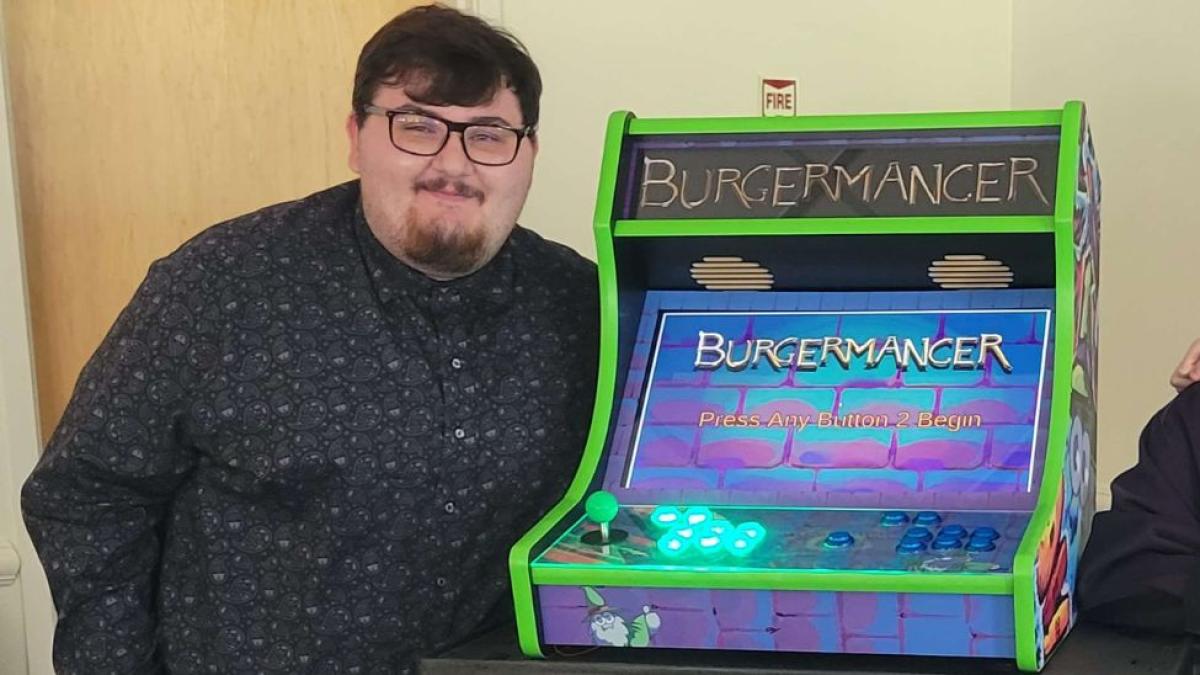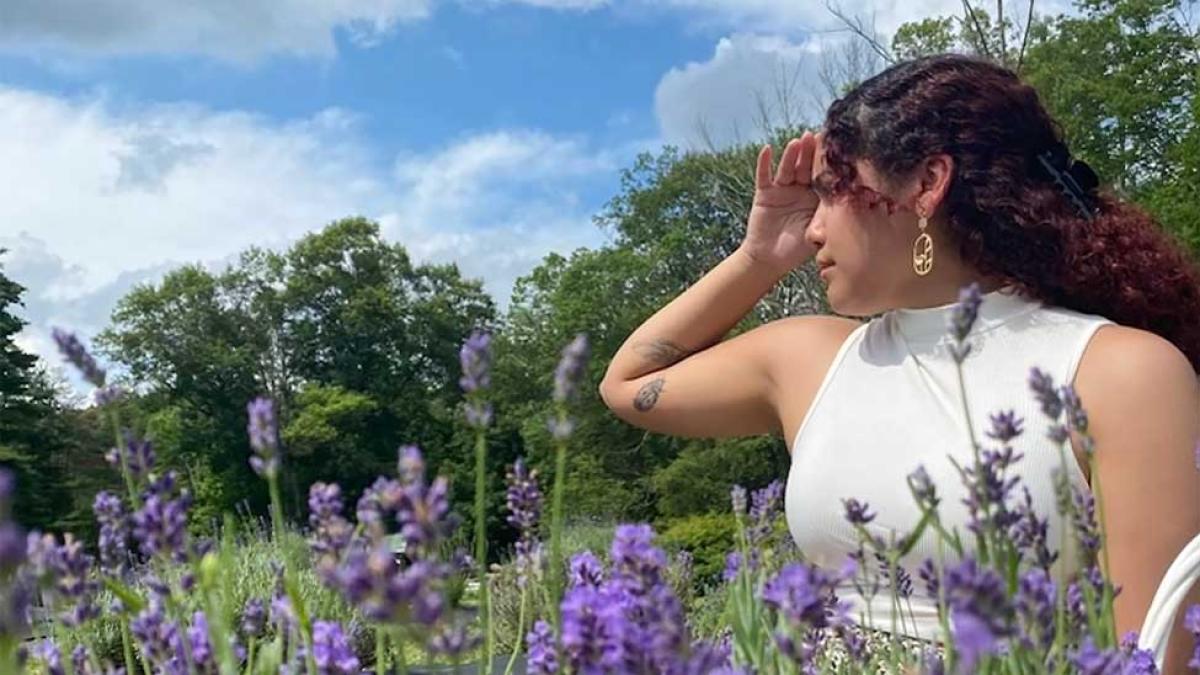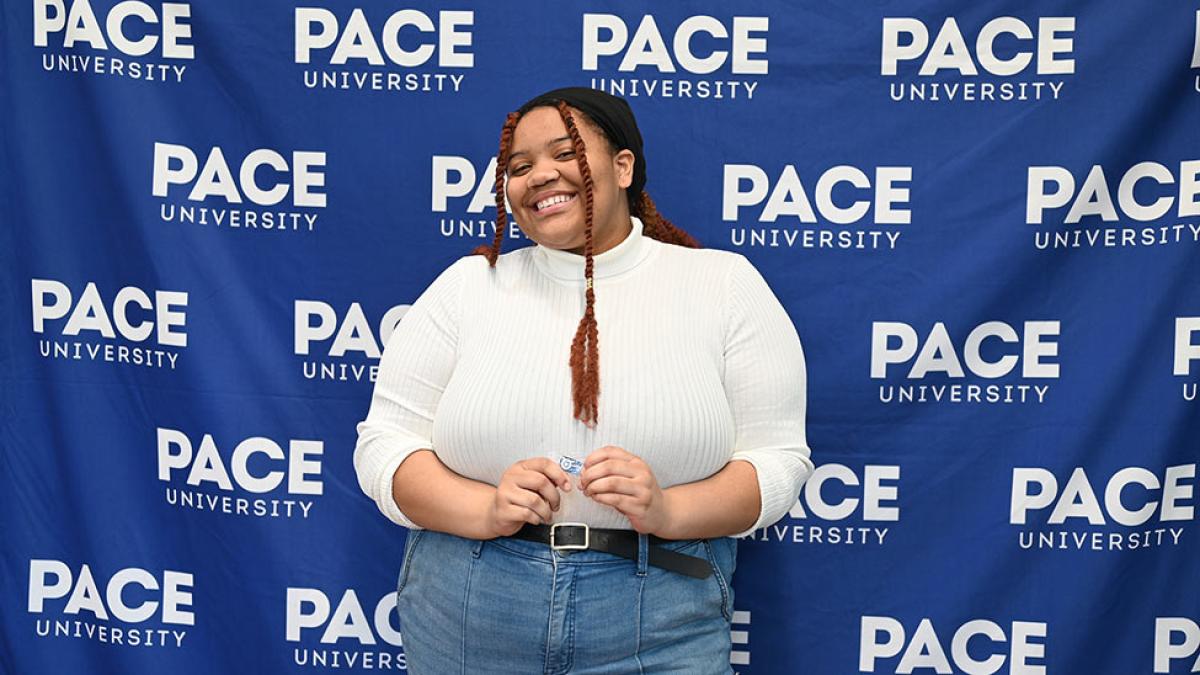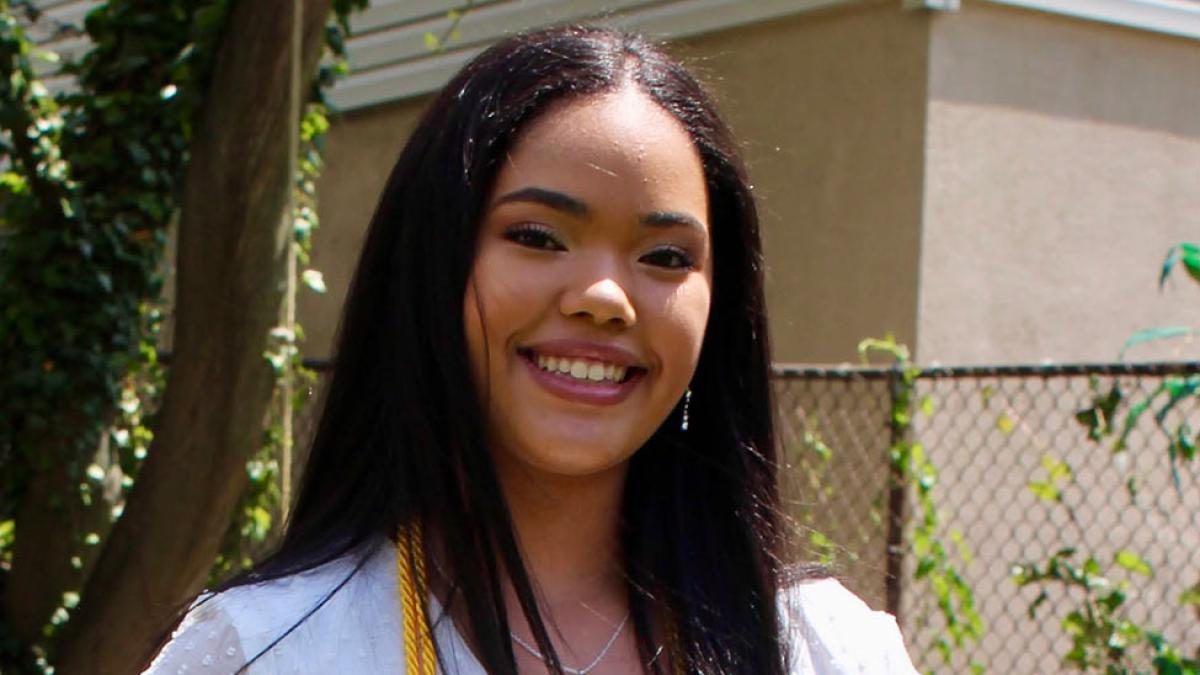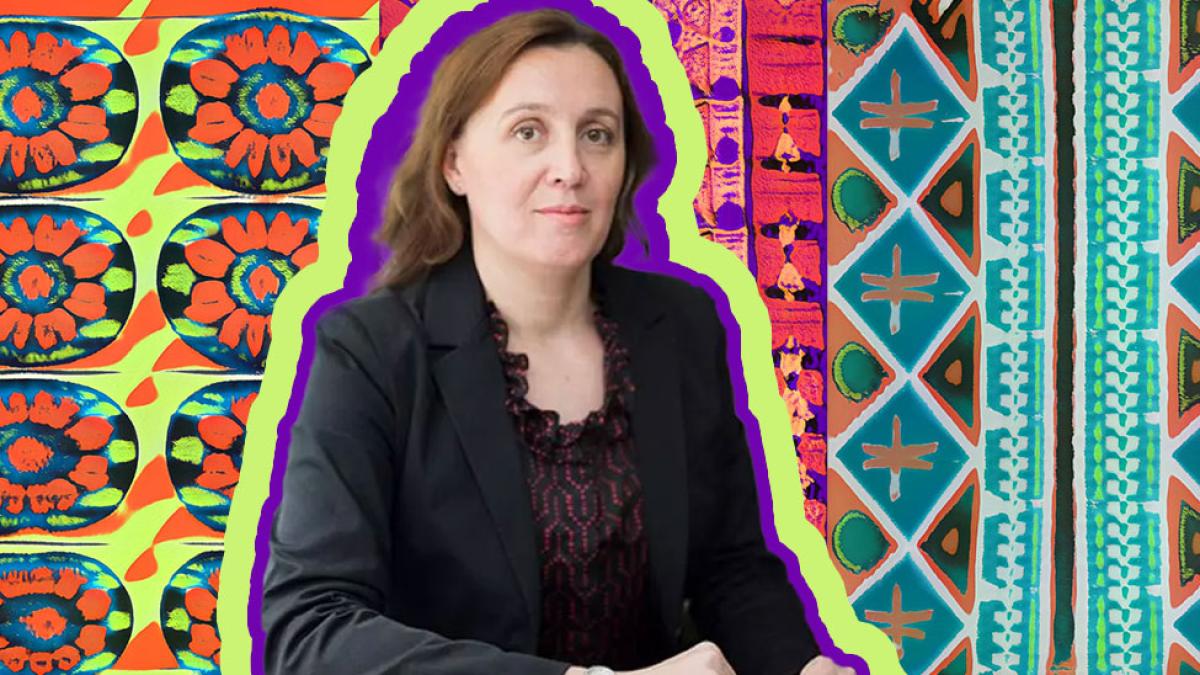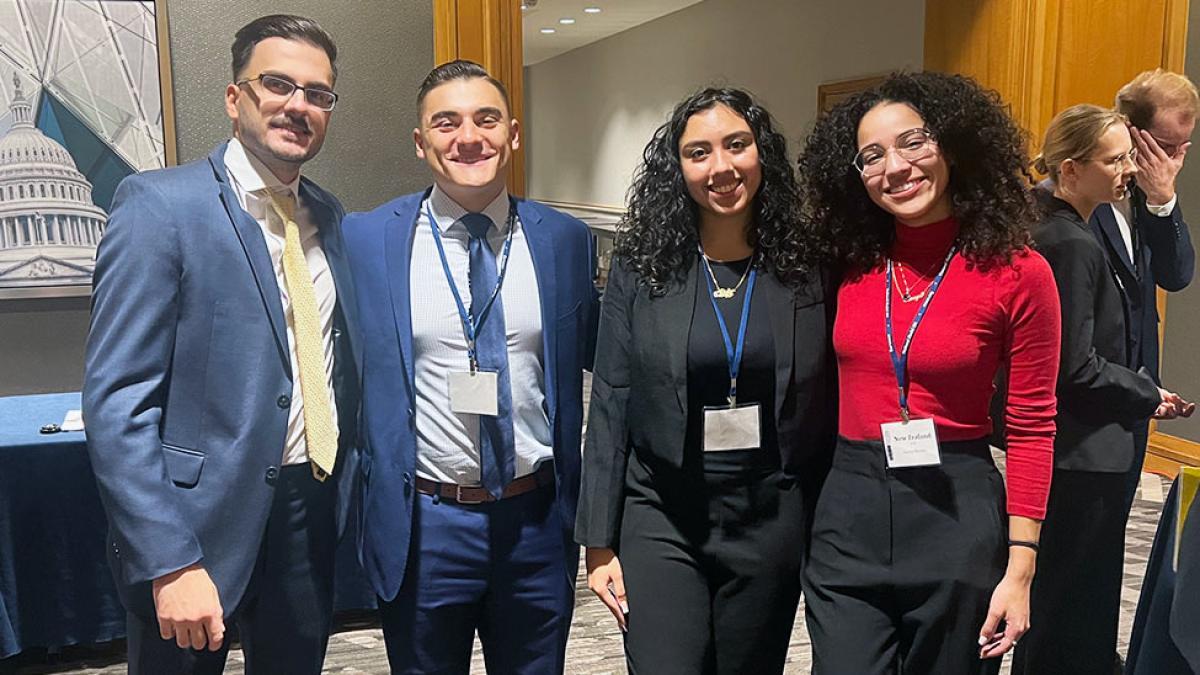When Michael Falco took new course Game Development for Everyone, he never expected to end up building and coding his own arcade game—which you can play at its home on the Pleasantville Campus!
SJD, A Crucial Degree: Daniel Castelo Branco Ramos '21
As a federal judge in Brazil, Daniel Castelo Branco Ramos describes his day to day as “overwhelming.” With the number of cases per judge always in the thousands, one of the highest on average in the world, Judge Ramos is lucky if he has any down time at all.
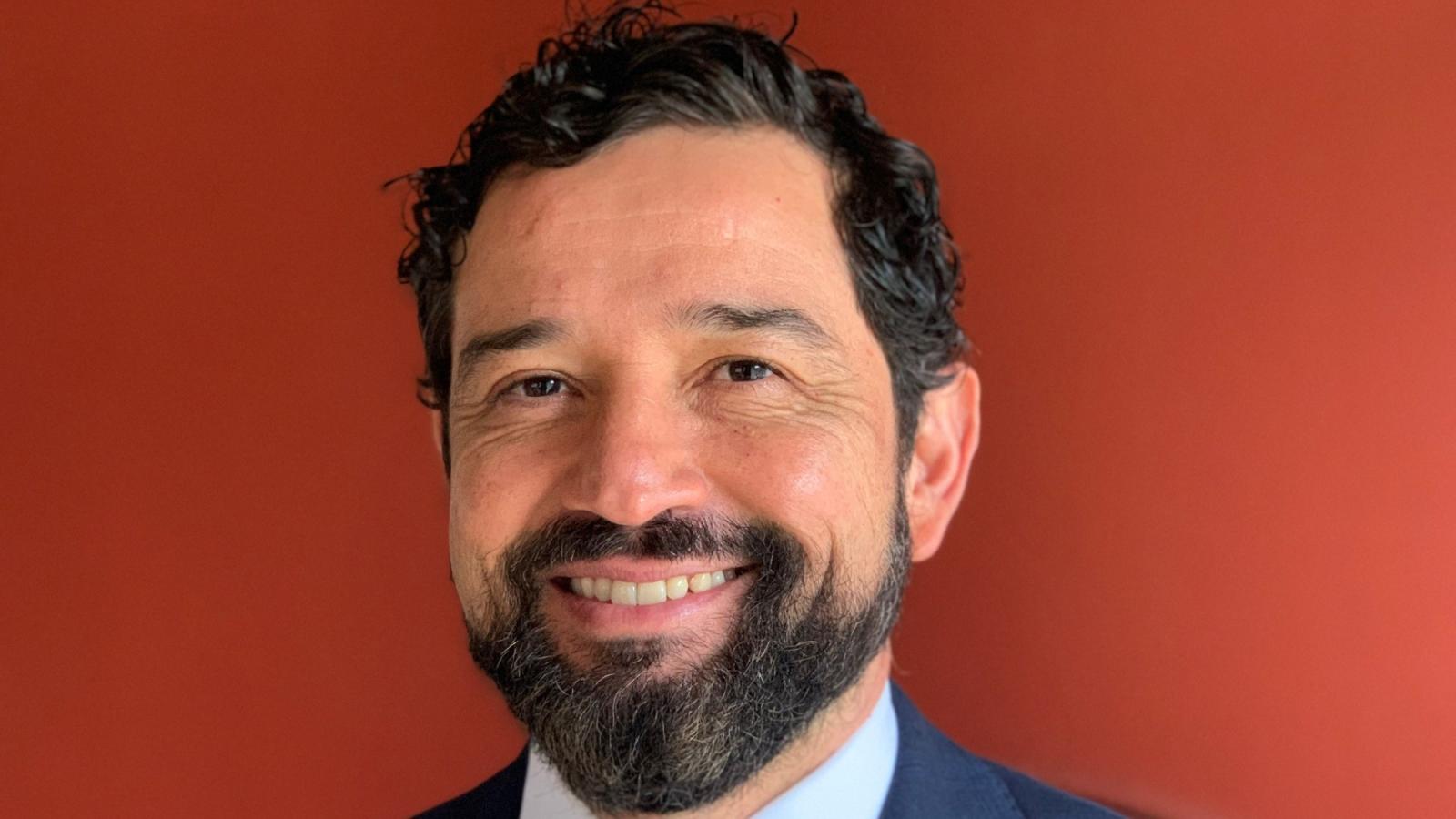
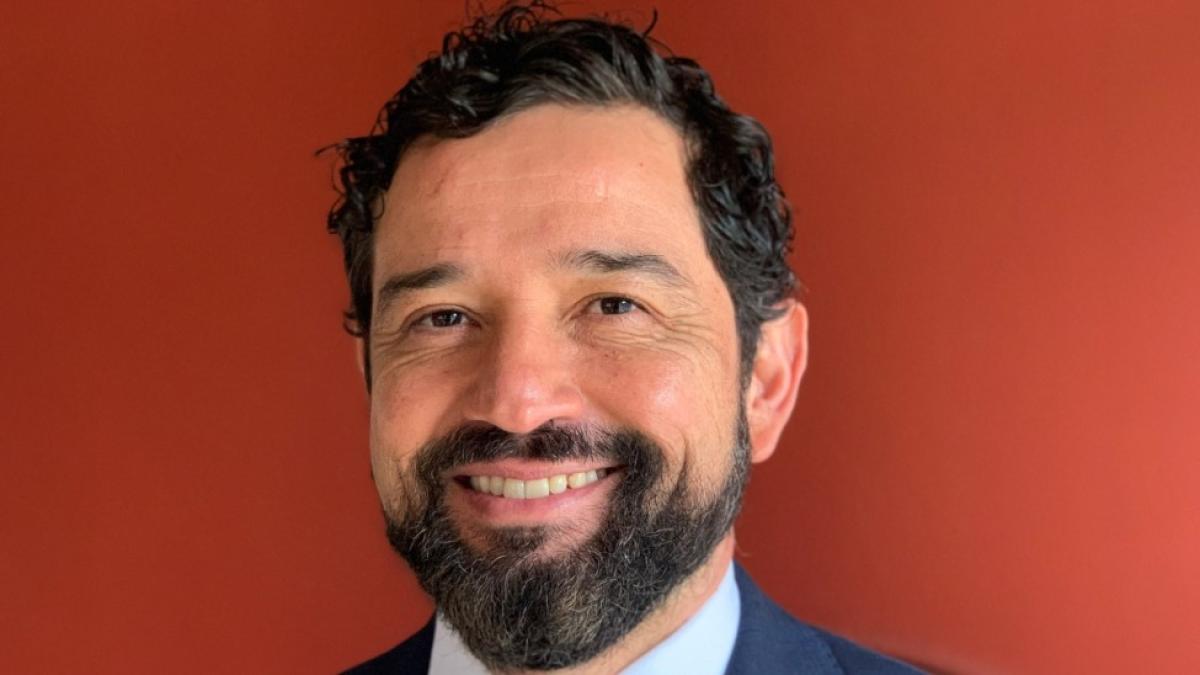
As a federal judge in Brazil, Daniel Castelo Branco Ramos describes his day to day as “overwhelming.” With the number of cases per judge always in the thousands, one of the highest on average in the world, Judge Ramos is lucky if he has any down time at all.
“Many of my cases involve a lot of litigation. Each morning, I dedicate myself to studying the most complex cases, elaborating on, and editing my opinions. In the afternoon, I attend to the lawyers, preside over hearings, and coordinate my advisors. As a morning person, this division of tasks works well. Even though it is extremely busy, I enjoy what I do, both the intellectual tasks and the personal contact with lawyers and litigants.”
Judge Ramos is also a professor, teaching environmental law, tax law, administrative law, and civil procedure law at the Milton Campos Law School, a private law school in Brazil. “Learning has always been of interest to me and in turn, so has teaching. I graduated with a degree in law from the Federal University of Minas Gerais 1998, which is one of the most traditional and respected universities in Brazil. I later received a master’s degree in public law in 2009 from the same University.”
It was Judge Ramos’s interest in both learning and environmental law that led him to pursue his SJD at Haub Law. “I knew Haub Law’s strong reputation and decided to apply for the doctoral program in environmental law. In addition, the differences between the legal systems in the United States and Brazil motivated me to do more in-depth comparative law research.” While he was a student at Pace, Judge Ramos had what he describes as many outstanding professors, including David Cassuto, Jason Czarnezki, and Nicholas Robinson.
While Judge Ramos describes the SJD program at Haub Law as one of the toughest intellectual and personal tasks of his life, he is very cognizant of the importance of the end result. “I work with environmental litigation and teach environmental law. The knowledge that I acquired during my SJD studies was crucial both in solving practical day-to-day issues and in deepening my legal thinking and research. Additionally, being immersed in a learning environment with a social and legal culture so different from the one I was used to was invaluable.”
When he isn’t behind the bench or in the classroom, Judge Ramos enjoys immersing himself in the nature of his home state, Minas Gerais, its many nature reserves, impressive waterfalls, fauna and flora. He is also very interested in the arts, literature, and music.
Dean Horace Anderson Honored with Nonprofit Westchester’s 2023 Changemaker Award
Horace E. Anderson, Jr., Dean of the Elisabeth Haub School of Law at Pace University, was honored as a recipient of the 2023 Changemaker Award by Nonprofit Westchester (NPW) at the organization’s Keep Westchester Thriving Awards Ceremony last week.


Horace E. Anderson, Jr., Dean of the Elisabeth Haub School of Law at Pace University, was honored as a recipient of the 2023 Changemaker Award by Nonprofit Westchester (NPW) at the organization’s Keep Westchester Thriving Awards Ceremony last week.
More than 300 supporters attended the event to celebrate the work of NPW and to honor the 2023 award recipients for their remarkable contributions to their organizations' missions, their transformative impact on clients' lives, and their unwavering dedication to addressing critical systemic gaps in our society. Dean Anderson was joined by fellow honorees Kathy Halas, Executive Director, Child Care Council of Westchester, Limarie Cabrera, Director of Data, Westchester Children’s Association, and Cheryl Brannan, Founder and CEO, Sister to Sister International.
The 2023 Changemaker Award was presented to Dean Anderson in recognition of his leadership creating a culture of collaboration, community service and innovation at Haub Law. During his tenure as Dean of the Law School over the past four years, Dean Anderson has lead the introduction of many new programs and initiatives that have strengthened ties with the community, including the Access to Justice Project, the Legal Hand Call-In Center Serving Westchester County, and the Sustainable Business Law Hub, as well as programs for student wellbeing and engagement, partnerships to improve diversity in the legal pipeline, and enhanced services for the community through Haub Law’s centers and clinics.
“Your leadership, intellect and humility have enriched our community and we feel it deeply in the nonprofit sector and through Westchester,” said Michelle A. Nicholas, Founder and CEO of The Nico Consulting, who presented the award in front of a supportive and enthusiastic audience.
Dean Anderson accepted the award, taking time to acknowledge the work and support of Law School administration, staff and his family in his accomplishments. He thanked the NPW and the nonprofit sector for their support of Haub Law’s mission and their tireless work to make Westchester County a more equitable community.
“This room supports Westchester in ways that a lot of people don’t see, but are vital,” he said. “There is nothing about making this a more equitable county, and county that supports opportunity more, and a county that supports wellbeing more that doesn’t start with the people in this room.”
Empowering Equality: Inside the JJLS Equal Justice America Disability Rights Clinic, Where Students Drive Change
In an effort to foster community engagement and provide free legal resources to seniors, Haub Law’s John Jay Legal Services Equal Justice America Disability Rights Clinic (“the Clinic”) recently participated in the Livable Communities Senior Village Fair, an event dedicated to the well-being and empowerment of our elder citizens. The Livable Communities Senior Village Fair is a community wide event that brings together older adults, their families, and local organizations.
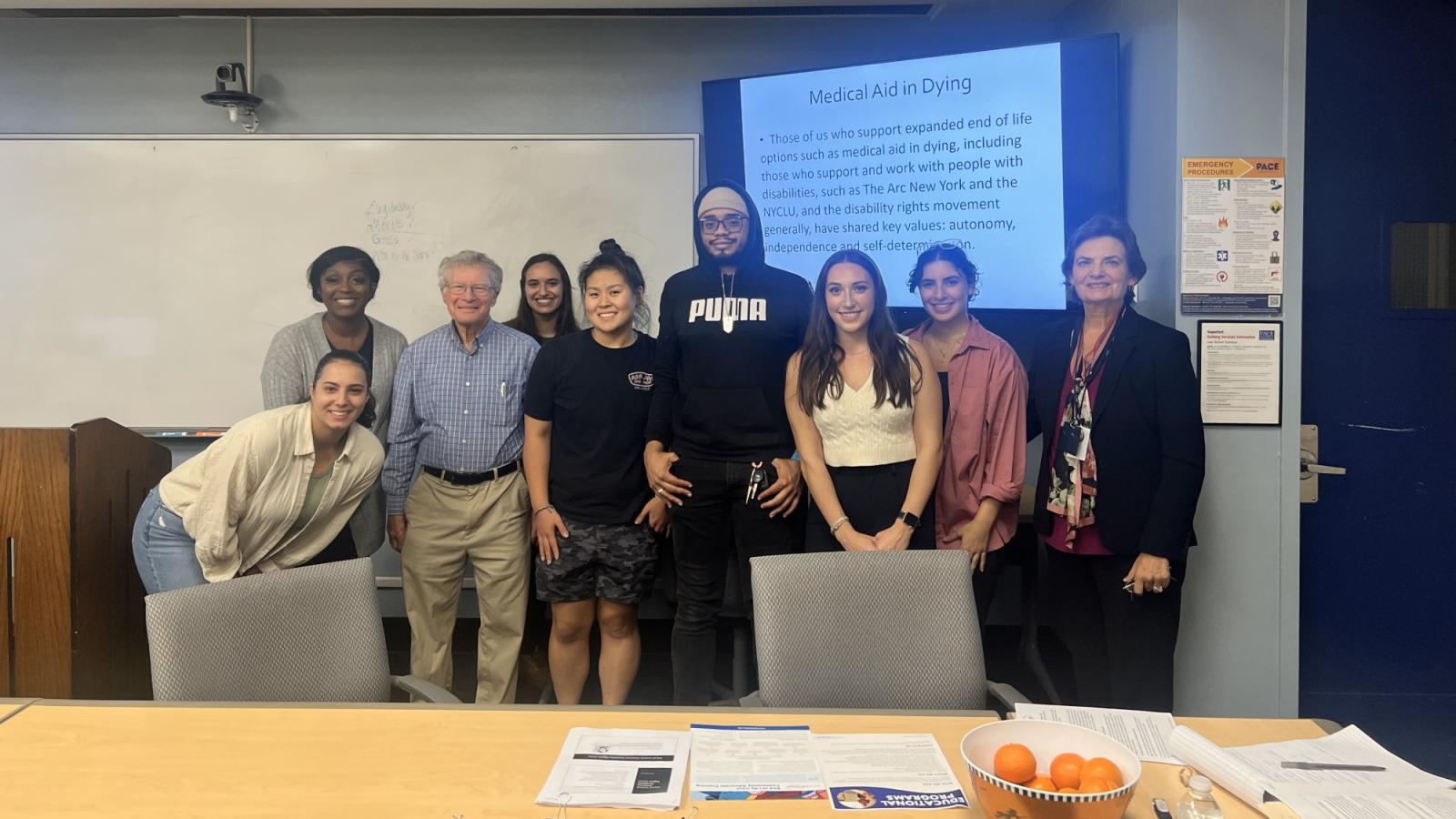

In an effort to foster community engagement and provide free legal resources to seniors, Haub Law’s John Jay Legal Services Equal Justice America Disability Rights Clinic (“the Clinic”) recently participated in the Livable Communities Senior Village Fair, an event dedicated to the well-being and empowerment of our elder citizens. The Livable Communities Senior Village Fair is a community wide event that brings together older adults, their families, and local organizations. This event served as a platform for seniors to connect, learn, and access important resources that can significantly impact their quality of life. These fairs offer a wide array of services and resources, ranging from health screenings and wellness seminars to legal advice and social activities. The goal is to empower seniors with the knowledge and tools they need to lead fulfilling and independent lives.
One of the crucial services that the Clinic offered was the provision of Healthcare Proxy forms, allowing individuals to appoint trusted agents to make their healthcare decisions and ensure their wishes are respected in times of need. A Healthcare Proxy, also known as a Medical Power of Attorney, is a legal document that allows an individual (the "principal") to appoint a trusted person (the "agent" or "proxy") to make healthcare decisions on their behalf in the event they become incapacitated or unable to communicate their wishes. This document ensures that the individual's preferences regarding medical treatment, end-of-life care, and other health-related matters are respected.
At the Livable Communities Senior Village Fair, the Clinic recognized the importance of empowering seniors to take control of their healthcare decisions. Many seniors may not have considered or signed a Healthcare Proxy, often thinking that family members will automatically have the authority to make medical decisions on their behalf. However, without a legally designated proxy, important healthcare decisions may be made by individuals who may not be aware of the senior's specific wishes. The students on the Clinic team provided informative sessions on the significance of Healthcare Proxies, explaining the legal implications and benefits of having one in place. Student team members walked attendees through the process of selecting a trusted agent and discussed common concerns and considerations when completing the form.
Haub Law clinic participants noted that the response from attendees was overwhelmingly positive with many seniors expressing relief and gratitude for having the opportunity to address this important aspect of their healthcare planning. “Seniors left the fair with a tangible tool that could provide peace of mind to both them and their loved ones,” said Gabriella Pereira ’24. “Furthermore, families of the seniors were appreciative of the guidance provided, recognizing the importance of clear healthcare directives in ensuring their loved ones' wishes are respected and followed.”
Haub Law clinic students described the Livable Communities Senior Village Fair as an enriching experience for all involved. “By offering Health Care Proxy forms and educating seniors on their significance, the Equal Justice America Disability Rights Clinic took a significant step towards empowering older adults to make informed decisions about their healthcare,” said Patricia Angley, Director of Equal Justice America Disability Rights Clinic. “This event serves as a reminder of the positive impact that legal support and community engagement can have on the lives of seniors, helping them to lead healthier, happier, and more fulfilling lives.”
A component of the Equal Justice America Disability Rights Clinic is a seminar class. Throughout the fall semester, several visitors have spoken as part of the seminar class. These speakers have educated the student attorneys on several topics and issues that affect the elderly and disabled population. The first speakers were Roberta Goodman Esq., from the Elisabeth Haub School of Law at Pace University’s Women’s Justice Center and Stefanie DeNise, Esq., law clerk to Administrative Judge Anne. E. Minihan and adjunct law professor. “Both speakers discussed the ways that advancements in technology can be used to target the elderly, noting that the growing number of scam calls have advanced, and scammers continue to target the elderly and vulnerable members of our society,” said Silvana Martinaj ’25. “The speakers stressed the importance of educating the vulnerable people in your life about these scams and shared their efforts in helping those who have fallen victim to them.”
Later in the semester, David Leven, Esq., spoke in the seminar class about the importance of advance care planning, health care proxies, and choosing a healthcare agent. He also spoke about Medical Aid in Dying (MAID), currently proposed legislation in New York. Mr. Leven began with a discussion about how for most of our history, dying was typically a brief process, and how it is only in more recent history that death for many individuals has come only after a long medical struggle with an incurable condition. He discussed some of the arguments for and against MAID, concerns about abuse and coercion within vulnerable populations, and the importance of individual autonomy when making healthcare decisions. His lecture concluded with an informative discussion about the requirements in the ten states which do authorize MAID or similar statutes, and current pending legislation efforts in New York.
The Equal Justice America Disability Rights Clinic provides an informative and demonstrative environment for students to foster a commitment to both learning and service. As the student attorneys navigate the intricacies of emerging legal issues, they not only enhance their own understanding but also contribute meaningfully to the community by providing valuable assistance to those in need. Through this dual pursuit of education and advocacy, the Equal Justice America Disability Rights Clinic stands as a symbol of empowerment, fostering a generation of lawyers who not only grasp the complexities of the law but are also driven by a profound sense of social responsibility. The Clinic exemplifies the transformative potential of legal education in creating a more just and equitable society.
December 2023: A Message from President Krislov
As the year concludes amidst shorter days and final exams, President Krislov reflects on a momentous 2023, marked by the opening of a 26-story campus center in New York City, athletic achievements, accolades for the law school, and the establishment of the Sands College of Performing Arts.

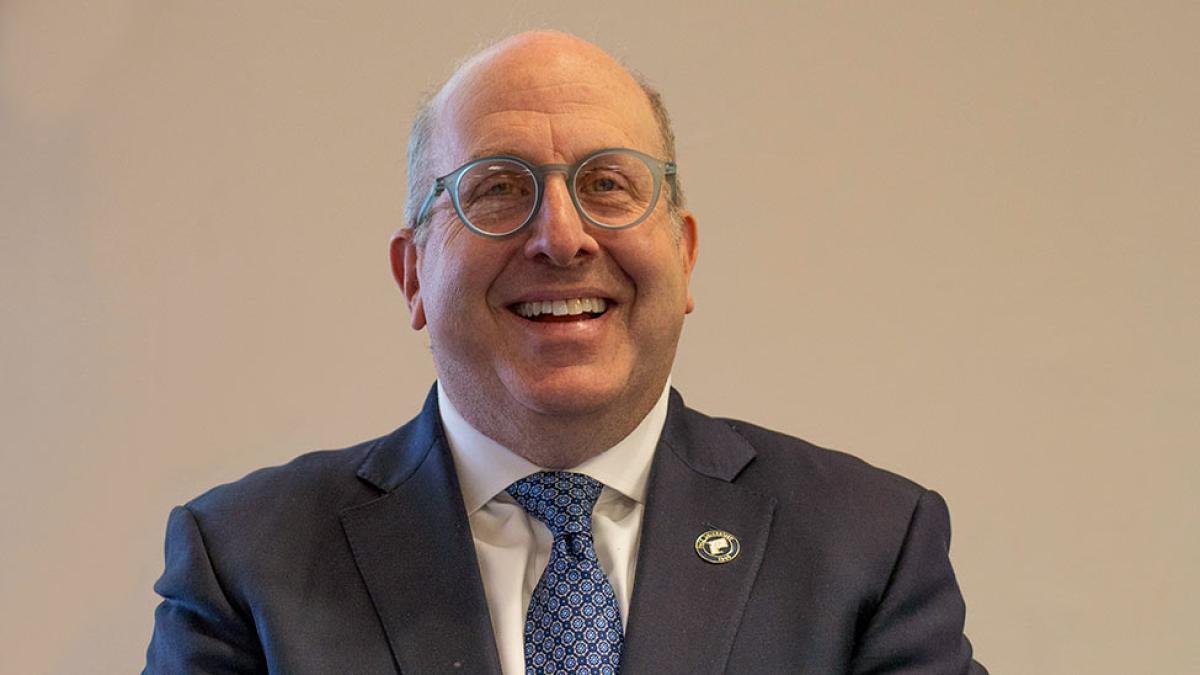
As the days get shorter and final exams ramp up, it’s time to reflect on the year that’s wrapping up.
It’s no exaggeration to say that 2023 has been a momentous one at Pace University. This year, we opened our brand-new 26-story campus center at 15 Beekman in New York City—and we started work on the renovation of the east side of One Pace Plaza that will bring us a state-of-the-art Performing Arts Center, an updated residence hall, and new classrooms and gathering spaces for the full Pace Community. In Pleasantville, our women’s lacrosse team became the first national championship squad not only in Pace history but in all of Westchester County history. The Elisabeth Haub School of Law was named the top environmental law program in the nation for the third consecutive year and the fourth time in five years. And in the biggest news of the year, in the spring Board Chair Rob Sands, JD ’84, and his wife, Pamela, made the transformation contribution that we recognized by creating the seventh independent school within Pace University, the new Sands College of Performing Arts.
As this issue of Pace Now demonstrates, there are exciting things happening all across our campuses. You can read about our Esports program, which launched only two years ago as Pace’s 15th varsity sport but is already well on its way to becoming a powerhouse. You’ll meet students who are up to remarkable things, from video game maker Michael Falco to environmental scientist and conservation expert Madelyn Garcia to international student Hitasha Nagdeo, who’s earning a master’s in social media and mobile marketing while holding down two different student assistant roles to Lucie Belle Flagg, who is raising awareness for people with hidden disabilities.
We’re also learned this year just how generous the people of Pace can be. The fiscal year that wrapped up in July set a record for contributions to Pace, with $43 million raised. That’s all money to support crucial efforts to support our important mission of Opportunitas—from donations for scholarships to capital investment to pay for construction and repairs to funding for critical student support initiatives. Just last week, the Pace Community surpassed our goal for Giving Tuesday, making 2,430 gifts totaling more than $800,000.
I’m grateful for that generosity, I’m grateful for our community, and I’m grateful for all that we’ve accomplished together this year. Have a wonderful and relaxing break and happy holiday season. I’m looking forward to the great things we’ll do together in 2024.
More from Pace
Pace student and UN Millennium Fellow Lucie Belle Flagg ’24 channeled both her frustrations and her energy into bringing greater awareness of hidden disabilities to the Pace Community. Through her collaborative work, she’s helped make Pace the first university in New York to officially launch the Hidden Disabilities Sunflower program.
Madelyn Garcia '23, '24, has already made a considerable impact at Pace. She spent the summer interning at Defenders of Wildlife, an organization that embraces an intersectional approach to conservation, as she prepares to graduate with a combined degree focused on environmental science, conservation, and policy.
Flower Power: Shining a Light on Hidden Disabilities
Pace student and UN Millennium Fellow Lucie Belle Flagg ’24 channeled both her frustrations and her energy into bringing greater awareness of hidden disabilities to the Pace Community. Through her collaborative work, she’s helped make Pace the first university in New York to officially launch the Hidden Disabilities Sunflower program.

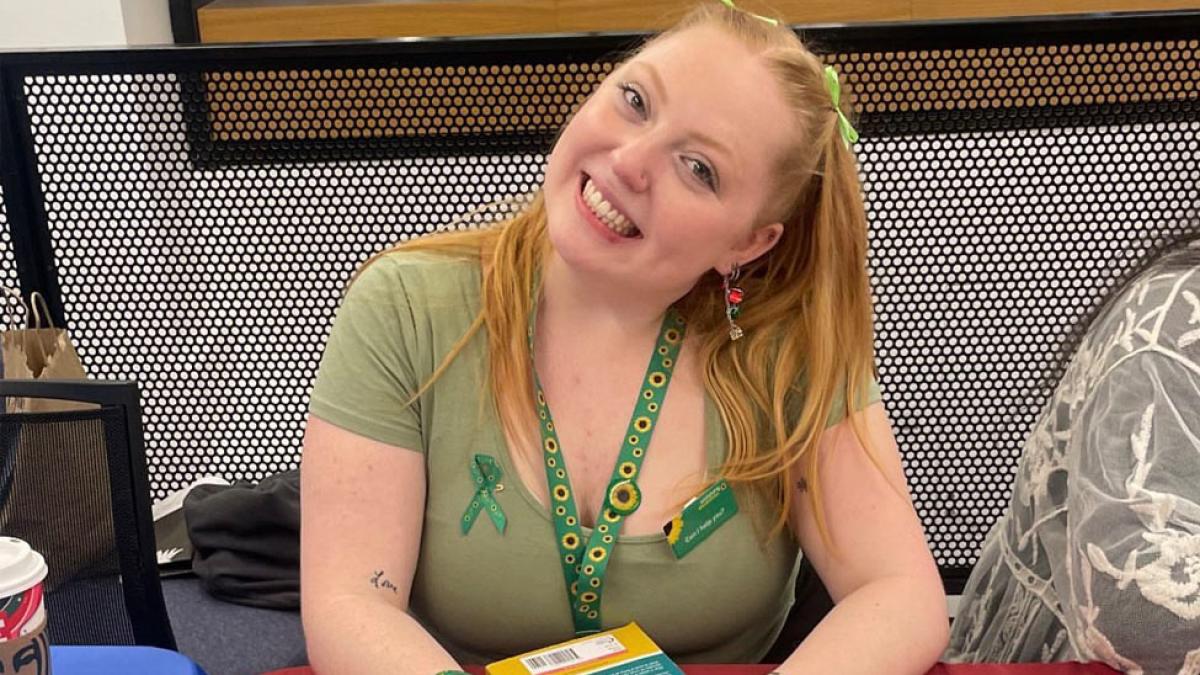
“When I first came to Pace, I had a very difficult time getting the accommodations I needed because my disabilities weren’t visible to the human eye,” recalls Film and Screen Studies student Lucie Belle Flagg ’24. “So many of my peers with hidden disabilities had also been turned down for accommodations and I realized that this was a serious issue at Pace. With such emphasis on Opportunitas at Pace, we needed to find a way to offer equitable access to such opportunities.”
So, Lucie got to work.
In March of 2022, she visited her sister who lives overseas in St Andrews, Scotland. There, Lucie was introduced to the Hidden Disabilities Sunflower and how it works worldwide to support individuals with hidden disabilities and help raise awareness. The sunflower is a globally recognized symbol for hidden disabilities and wearing one helps wearers to discreetly signal to people around them that they may need additional support or help in public areas.
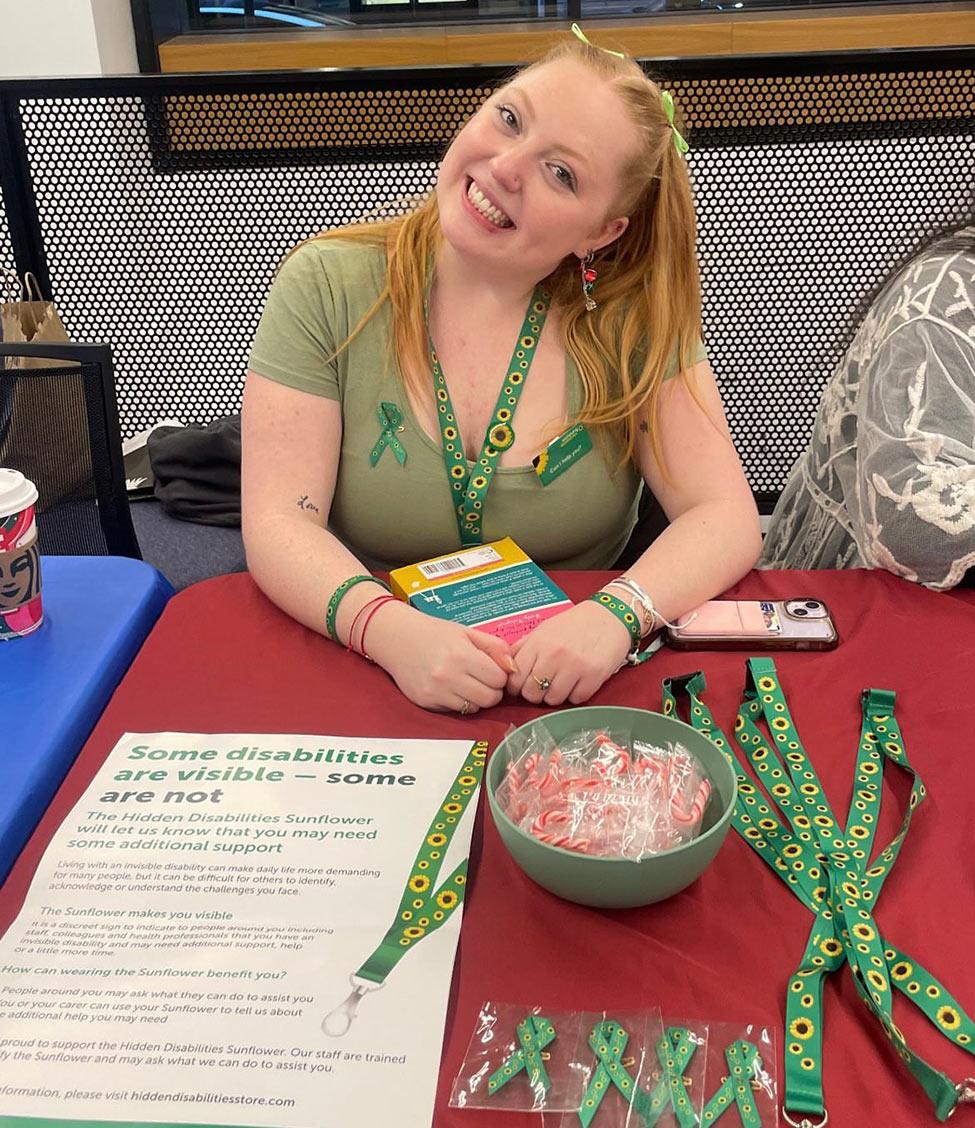
Hidden disabilities include, but are certainly not limited to, ADHD, anxiety disorders, autism, chronic fatigue syndrome, chronic pain, depression, epilepsy, food allergies, diabetes, Crohn’s disease, Lyme disease, fibromyalgia, Ehlers-Danlos syndrome, PoTS, multiple sclerosis, and so much more.
“Understanding the power of the Hidden Disabilities Sunflower project, I applied for the Millennium Fellowship—a fellowship program presented by the United Nations Academic Impact and the Millennium Campus Network,” she says. “My project proposal aimed to provide support to Pace students, staff, and faculty with hidden disabilities by participating in the Sunflower Lanyard Scheme.”
That summer, Lucie was accepted into the fellowship program and began her fundraising efforts for her project, Hidden Disabilities at Pace, with the aim of providing support for students, staff, and faculty on campus with hidden disabilities. Nearly 30 people from Pace and beyond backed her project, and she was able to collect almost $1,300 to purchase sunflower-themed lanyards which would be shared with the Pace Community.
“With the support of Dr. Sue Maxam, we were able to purchase a Hidden Disabilities Sunflower membership and hundreds of lanyards,” Lucie says. “Dr. Maxam and I largely rode solo throughout this process, so seeing people on campus getting involved makes all of the hard work worth it.”
“It’s key to spread awareness and advocate for inclusivity. You have the power to contribute to a more inclusive and accommodating community.”
Through her tireless efforts, Pace University has become the first university in New York to officially launch the Hidden Disabilities Sunflower program, empowering those with hidden disabilities to take up the sunflower icon as a means of representation and self-advocacy. “Anyone that self-identifies as having a hidden disability should consider getting involved by representing the sunflower on campus and educating their peers about hidden disabilities,” she says.
So, what can you do if you see someone in our community with a sunflower lanyard?
“The most important piece of advice for supporting people wearing a Sunflower lanyard is to be understanding and patient. Everyone’s disability is different, so you can’t make assumptions
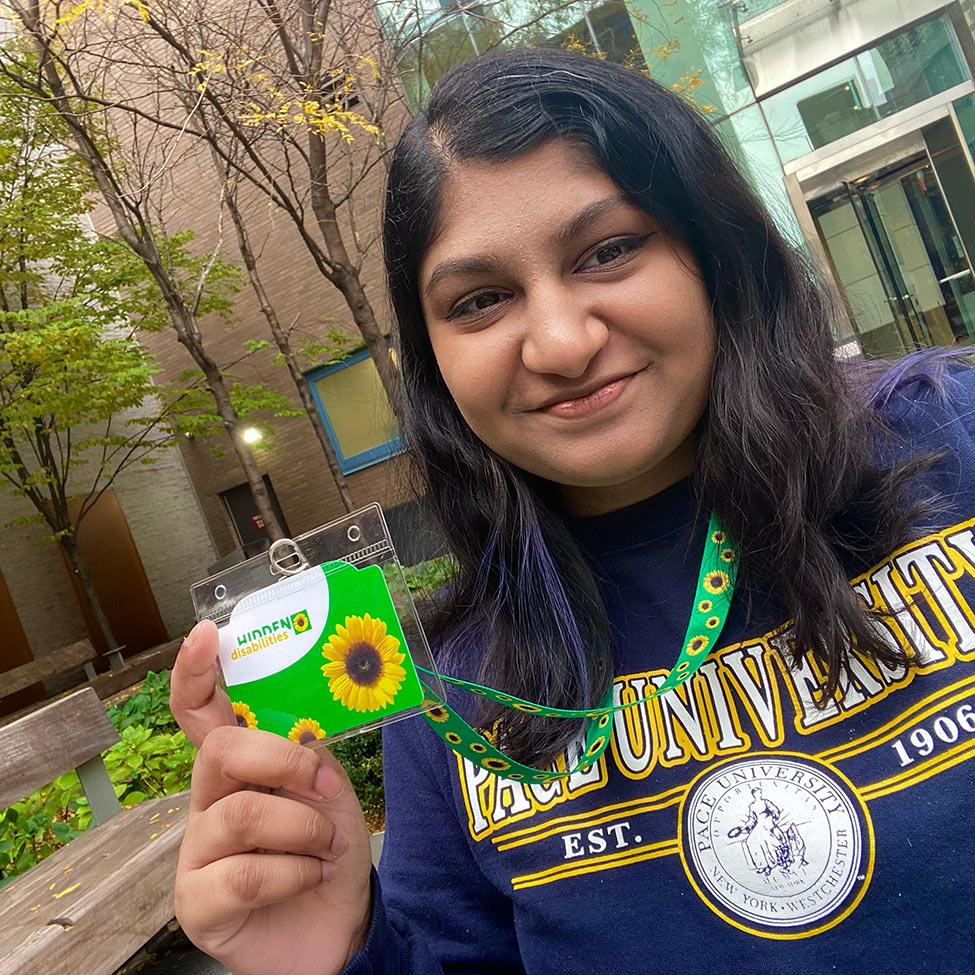
about their needs. It can be tricky to navigate a conversation about the Sunflower in a way that respects one’s privacy, but doing so can make a huge difference,” explains Lucie. “If you notice someone wearing the lanyard who appears to be struggling you can absolutely offer assistance. However, it’s essential to not insist. Respect their choice to decline help, as some people choose to manage challenges independently.”
"Being the first person to receive a sunflower lanyard at Pace is a privilege that I am so grateful for!" says Behavioral Neuroscience student Samara Durgadin '25. "As for my fellow lanyard wearers, I hope wearing the sunflower lanyard helps you feel less alone in your struggles and reminds you that your conditions are real and matter greatly, even if they don’t show outwardly."
“Personally, if someone asks me why I wear my lanyard, I am beyond happy to explain my disabilities. But that’s not the case for everyone. Don’t request details unless they choose to share them,” Lucie says, adding that it’s also very important to be aware of environmental factors. Avoiding crowds, loud noise, or bright lights can help people feel more comfortable and communicate better. “Lastly,” she says “It’s key to spread awareness and advocate for inclusivity. You have the power to contribute to a more inclusive and accommodating community.”
"To be able to receive a sunflower lanyard and then see my peers wearing them warms my heart and lets me know I’m not alone," adds Samara.
Want to pick up a sunflower lanyard of your own? Head to the main security desk at One Pace Plaza. Unlike the process for formal accommodations, picking up a lanyard requires no proof of diagnosis or documentation. You can simply ask a security guard for a lanyard, and they will happily give you one with no questions asked.
If you’re ready to learn more about Lucie’s project, follow @hiddendisabilitiesatpace on Instagram. To learn more about the Hidden Disabilities Sunflower, check out their official website.
More from Pace
When Michael Falco took new course Game Development for Everyone, he never expected to end up building and coding his own arcade game—which you can play at its home on the Pleasantville Campus!
A firsthand witness to its ascent from a nascent club to a veritable powerhouse in competitive gaming, Julia Cardillo ’22, Assistant Director of Esports, shares her insights on the evolution of Pace's Esports program.
The Pace Community's incredible generosity on Giving Tuesday surpassed our goal, resulting in 2,430 gifts and over $823,901 raised for student success.
Q&A with First Generation Student Amber Brouwer '24
Amber Brouwer '24 shares her insights on the unique challenges and surprising strengths she's realized on her journey as a first generation student at Pace, highlighting the importance of community and resourcefulness in shaping her college experience.
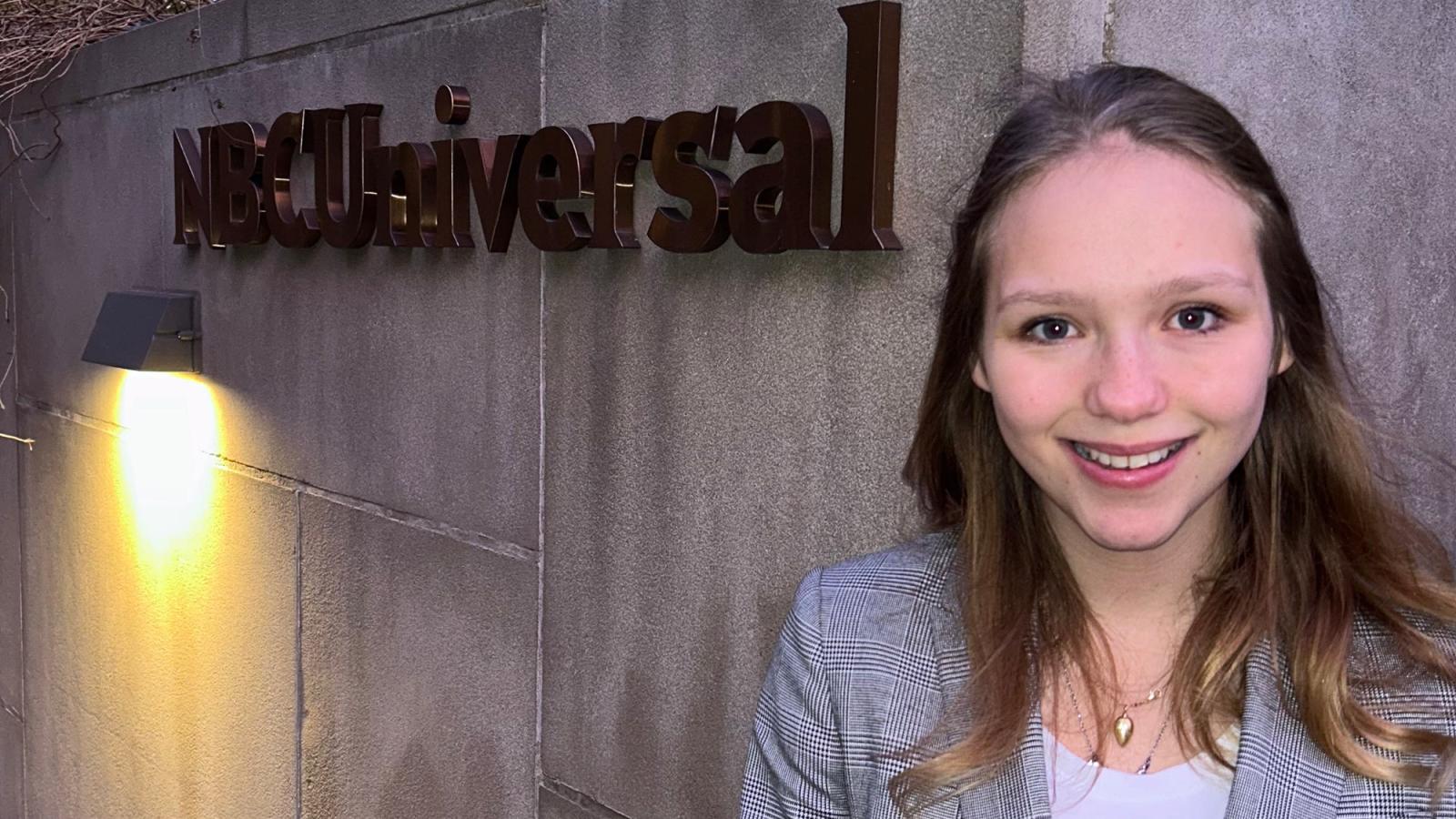
Amber Brouwer '24 is navigating her Pace University journey with a blend of independence and curiosity that are trademarks of first generation students. While pursuing her bachelor’s in Applied Psychology and Human Relations, she's also balancing her roles as an honors resident assistant, peer leader, and student aide, while taking on career-building opportunities like an internship at NBC Universal.
Amber is making the most of her time at Pace, creating a multifaceted college experience that is tailored to her ambitions. She took the time to share a bit about her experience as a first generation student, and the unique challenges and unexpected benefits that comes from tackling college as the first in her family to do so.
What does it mean to you to be a first generation student?
Being a first-gen student means that I have had to figure a lot of logistics out myself. This could be challenging but it also means that there was no one to tell me that there were things I had to do or things I couldn't do. This allowed me to really be able to create the Pace path I wanted and to create new opportunities for myself and others around me.
What are some of the challenges of being a first generation student?
My family members don’t always understand the stories I tell them about my college experience. It used to worry them when I said I was taking classes that seemed unrelated to my major or when I decided to switch my major completely. I had to explain the system to them and learn how to navigate those conversations differently, which is why finding community has been so important. They understand the struggles you’re going through and remind you that you aren’t alone.
What are some of the secret ‘superpowers’ first-gen students possess?
“Being a first generation student has affected me in such a positive way. Yes, things were harder at first, because figuring out all of the right paperwork and financial aid on your own can be hard. But I also wanted to take every opportunity I had. I saw these four years as the time for me to try every club, job, and opportunity that I found interesting.
Being a first generation student has made me extremely resourceful and able to figure things out no matter how hard they are, which are skills I use in jobs and interviews all the time. “
Why is it important to be part of a first generation student community?
Finding community with other first generation students is important because they understand the struggles that you are going through. It reminds you that you are not alone. Even though I enrolled during the pandemic, I was able to create a very tight knit group of people that were, just like me, on campus every day, as well as get to know the faculty and staff so much better.
During my first year, I especially got to know our first generation mentor/mentee group pretty well. My first generation mentor was amazing, and we still talk. She helped me with getting resources, gave tips and tricks about financing college, and told me about her time at Pace and how she achieved her goals. I loved her so much and am so grateful for this program.
Why did you choose Pace?
The main reason I chose Pace was the proximity to NYC and how easy it was to commute back and forth if I wanted to find an internship there. Over time, I learned more about the amazing connections Career Services has and all of the other amazing opportunities.
What’s been the best part of your Pace experience?
The best part of my Pace career is meeting all of the amazing people I have gotten to know. Both students and professors have made this experience so great and even though I am excited to graduate, I will also miss everyone. Pace has so many opportunities and I am glad that I chose this school four years ago.
What would you tell fellow first-gen students thinking about coming to Pace?
My experience at Pace has been great. I have taken the opportunity to explore so many things here. Pace makes it so easy to get involved, I would really encourage everyone to just show up to club meetings, events, or even the student engagement office, and get to know your fellow students.
More from Pace
Join Danielle Shoulders '24 on her transformative journey as a first generation student at Pace, where she's making every moment count. From her Environmental Studies program, student clubs, internships, and more, learn how she's overcoming challenges and helping create a vibrant community.
Meet D'Andrè Butler and follow along with his inspiring journey as a first generation student at Pace, balancing academics, work, and club leadership with an unwavering quest for independence. Read on to explore his unique challenges and triumphs, and how he's shaping his future at Pace.
Get to know Valentina Rojas Abreu '24, a first-gen student and President of the First Generation Program at Pace, as she shares her journey of independence and community, and offers insights into the challenges and strengths faced by first-gen students.
A Globetrotting Go-Getter
From India to the Middle East and now to the heart of New York, Hitasha Nagdeo’s ’23 journey is one marked by resilience and ambition. Follow along as she reflects on her passion for giving back and her relentless pursuit of progress.


My name is Hitasha Nagdeo. I am graduating in December 2023 with my MS in Social Media and Mobile Marketing degree.
I consider myself a global person. I was born in India and spent the initial years of my life there. Then, at the age of 5, I moved to the Middle East, specifically Jeddah in Saudi Arabia, and completed middle school there, before returning to India.
Now I’m in my third country, the United States—my newfound home and the place I aspire to call home for the rest of my life.
I appreciate Pace, not just for its academic profile, but also for the comprehensive support that it provides which is especially important for me as an international student.
I fell in love with New York before I fell in love with Pace. Having said that, Pace has its own merits to fall in love with. I appreciate Pace, not just for its academic profile, but also for the comprehensive support that it provides, which is especially important for me as an international student. I was also really drawn to my program because, unlike at other schools, it’s a STEM-designated program, which is an important distinction for international students like me who can get a longer visa duration if we’re enrolled in a STEM program.
Transitioning to a new country was challenging, even for someone who had experienced it before. Fortunately, Pace offered unwavering support whenever I needed it. From professors guiding me through academic uncertainties to friends facing similar challenges, the support system was robust. Not to mention the wealth of resources available on campus. The International Students and Scholar’s department has been a pillar of support since before my arrival in the US, and Career Services has played a vital role in helping me secure an on-campus position and preparing me for life after graduation.
I really love being able to talk to international students and give back all the support I was given.
Currently, I have two student assistant roles. One is as a graduate assistant in the Lubin School of Business for the director of my program and Associate Dean of the undergraduate program, Randi Priluck, PhD, where I help keep her materials updated with current market trends and assist students. The other student assistantship is with Campus Planning and Facilities, which I’ve been doing since the summer of 2022. I do whatever they need me to do, offering any administrative support I can provide.
I also volunteer off-campus with Kaplan Pathways India, a company that Pace partners with. I’ve actually been a student speaker for them as well and spoke about my experience to other international students. I was so glad to be able to speak with them and clear up their doubts, I even had some one-on-one sessions with students. (Apparently most of them enrolled!) Now, I’m working on creating content for Kaplan, everything from covering Pace career fairs, recommending how to pack when moving to the US, and creating Christmas themed content. I really love being able to talk to international students and give back all the support I was given.
As I get closer to graduation, I'm getting ready and manifesting good things.
I’ll be honest, it’s really difficult working two jobs, volunteering, staying involved in clubs, and keeping up with my schoolwork. Sometimes it can take a toll, but the fact is, especially as an international student, I've put in a lot of effort and money also to be here. I'm at a stage where I want to make sure everything that I do is in order and meeting the quality of that is required.
That brings us to now. Commencement is coming and I’ve been working with Career Services to find a job. As I get closer to graduation, I'm getting ready and manifesting good things. I try to remember that all this work is building to what I want to do. Pace has had such a positive impact on me, and I want to just pass that on.
More from Pace
A firsthand witness to its ascent from a nascent club to a veritable powerhouse in competitive gaming, Julia Cardillo ’22, Assistant Director of Esports, shares her insights on the evolution of Pace's Esports program.
From mentee, to mentor, to president of the First Generation Student program, Valentina Rojas Abreu ’24 knows the importance of community. Looking forward to National First Generation Student Day on November 8, Valentina reflects on the evolution of the first-gen program and what makes the first-gen community at Pace so special.
We could tell you to start by organizing your study materials and creating a study schedule to break your subjects into manageable portions, but you already know that. Here are some not-so-obvious tips to help YOU make it through exam season.
Improving the Human Experience with Technology: A Multidisciplinary Approach
Youngsoo Shin, PhD, joined the Seidenberg School faculty this fall. As a new professor in the information technology department, Dr. Shin is applying his unique background to teaching students the value of a multidisciplinary approach to technology.


Youngsoo Shin, PhD, joined the Seidenberg School faculty this fall. As a new professor in the information technology department, Dr. Shin is applying his unique background to teaching students the value of a multidisciplinary approach to technology.
We asked Youngsoo a few questions so the Pace community can get to know him a little better.
What is your background in terms of research, interests, academic pursuits?
I have a diverse background, having a B.A. in psychology, a B.S. in interaction design, and a M.S. in cognitive science and engineering from Yonsei University, South Korea, and a Ph.D. in human behavior and design from Cornell University. My professional journey extends across various domains, including user experience (UX) and data science, with experience garnered from well-known companies such as AMOREPACIFIC, Samsung Electronics, Hyundai Motors, LG Electronics, and McKinsey & Company. I've taught at Yonsei University, Kookmin University, and FASTCAMPUS, a prominent provider of on/offline practical education services in South Korea.
I developed my expertise in the areas of cognitive science, human-computer interaction (HCI), and data science. My research centers around three interconnected themes: (1) research in design contexts for investigating the mechanism of human experience with computing systems; (2) practice-based research for developing a framework for hyper-personalized UX design with data-driven approaches; and (3) research aimed at creating human-centered artificial intelligence (AI) to enhance human experience and wellbeing (i.e., addressing sustainable energy issues, fostering users’ prosocial behaviors, and supporting human health and digital wellbeing). My overarching research objective is to address pressing challenges in people’s daily lives by investigating the compelling questions surrounding human interactions with computing systems and AI technologies.
What brought you to Pace University?
Part of what excited me about Pace University is the opportunity to contribute to Seidenberg’s cross-disciplinary opportunities for improving human experience in technologically mediated contexts. I believe that Seidenberg is the perfect place for me to explore my multi-faceted view of human experience and AI with the outstanding faculty. As a catalyst to explore creative and innovative problem-solving approaches, I also believe that I can teach, study, and apply innovative HCI and data science research to solve critical challenges in science, technology, engineering, and society.
How are you finding working at Seidenberg so far? What classes are you teaching and how are they going?
As a new assistant professor at Seidenberg, I'm finding the experience to be both challenging and rewarding. The department and university have been welcoming, and I'm excited to be part of the academic community here. This semester, I'm teaching two graduate-level courses:
Information Systems Principles (IS-617): In this course, we explore the fundamental principles of information systems from a end-user perspective. Students learn to analyze and design information systems with a strong focus on enhancing the user experience.
Programming User Interfaces (IS-629): This course is dedicated to programming user interfaces for software applications with a deep commitment to human-centered design. We go beyond traditional programming by emphasizing the significance of UX
Overall, the semester is off to a positive start, and I'm looking forward to helping my students develop their skills and knowledge in these important areas of computer science and information systems.
Who should take your classes, what should their interest areas be?
My primary teaching goal is to help students be a jack-of-all trades and master of some in a rapidly changing world. During my multidisciplinary journey at the intersection between cognitive science, data science, and UX design, I have witnessed that the versatility of perspectives and approaches has become more important than the focus of the domain- or field-oriented mindset. I invite students who want to learn the value of how to think as a generalist, instead of merely what to think as a specialist, in the field of HCI/UX.
Is there anything you’re planning to do in the coming months or years?
I plan to re-envision the future of HCI/UX and data science to create more highly human-centered AI technologies. At Seidenberg, I would like to test the generalizability and feasibility of my approach to human experience and AI by exploring new implementation areas and consolidating emerging approaches. Given that a wide range of AI technologies can be developed and tested to support users’ daily behavioral decision-making experiences, I expect that developing and testing additional design solutions will allow me to advance findings from previous studies iteratively. Specifically, I will identify new types of psychological and behavioral UX constructs and user profiling methods by focusing on the possibility of varying data collection sources and types in various AI technology usage contexts. Also, I will contribute to research about privacy-enhancing technologies, and transparency and fairness in digital privacy, as my previous research can be utilized as a foundation to better understand how to discuss this specific ethical and data-related issue raised by the development, deployment, and use of AI technologies.
Any final words?
To strengthen bridges across a range of fields regarding human experience and interactive systems requires a continuously wider and deeper learning process with a strong belief in growth.
There are no clear sets of rules or definite directions for investigating human experience with computing systems. Thus, the journey of becoming a transdisciplinary problem solver across relevant fields leads us off the well-worn path.
However, I hope to connect the dots of my previous professional and academic experiences to inspire Pace University students to bring innovations in the world. Thank you.
More from Pace
Juan Shan, PhD, an associate professor of computer science in Seidenberg, is focused on applying artificial intelligence and machine learning to analyzing medical imaging
Meet Christelle Scharff, PhD, a computer science expert focusing on the limitations and biases of AI systems. She and her team are tackling the intersection of AI and African fashion to explore the impact of diverse datasets.
Seidenberg's new faculty member, Jonathan Williams, brings his expertise to the human centered design master's program, where user experience leads technologists, artists, designers, and psychologists to build better, more equitable, and more beautiful things.
The Results are In: Giving Tuesday 2023
The Pace Community's incredible generosity on Giving Tuesday surpassed our goal, resulting in 2,430 gifts and over $823,901 raised for student success.

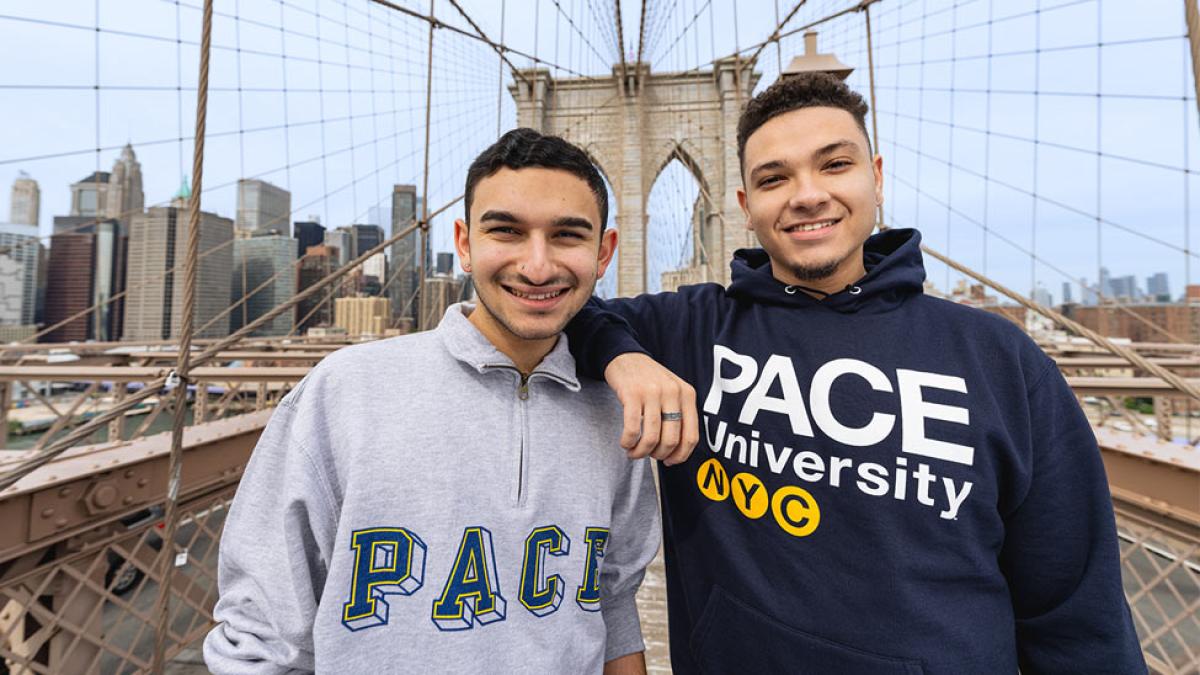
The incredible spirit of the Pace Community has triumphed on this year's Giving Tuesday. Your overwhelming generosity is paving the way for students to thrive on their Pace Path, ensuring they have the essential resources for success.
Pace University has not only met but soared past our ambitious goal of 2,310 gifts, reaching an impressive 2,430 donors from 41 states and 6 countries. Thanks to your unwavering support, we've raised a staggering $823,901, and the momentum is still building! If you haven't joined in yet, there's still an opportunity to make a difference—contribute today and be part of this extraordinary journey empowering our students.
Looking to make an impact on student success? On April 17–18, 2024 the Setter community will come together for the Pace University 1906 Challenge to support Pace students.
More from Pace
The Pace University Model United Nations teams have a longstanding tradition of success, and this year proved to be no different.
Get to know Valentina Rojas Abreu '24, a first-gen student and President of the First Generation Program at Pace, as she shares her journey of independence and community, and offers insights into the challenges and strengths faced by first-gen students.
A firsthand witness to its ascent from a nascent club to a veritable powerhouse in competitive gaming, Julia Cardillo ’22, Assistant Director of Esports, shares her insights on the evolution of Pace's Esports program.
Guiding Pace’s Esports Evolution
A firsthand witness to its ascent from a nascent club to a veritable powerhouse in competitive gaming, Julia Cardillo ’22, Assistant Director of Esports, shares her insights on the evolution of Pace's Esports program.


There are few people more qualified than Julia Cardillo ’22 to offer an insider perspective on the journey of Pace’s Esports program.
Julia’s involvement with collegiate Esports began in 2019, back when Esports was a student-run club. In 2021, Pace Esports was formalized into an official program, and Pace’s 15th varsity sport. Now, as the Assistant Director of the program, Julia’s helping guide the program into its bright future.
Considering her unique experience with the program from its roots as a club to her involvement in supporting it as a varsity sport, Julia shares her insights on how Esports at Pace has transformed while maintaining a dedicated commitment to community and inclusivity.
First things first, tell us a bit about your background.
I graduated from Pace in 2022, and I studied computer science and economics. I joined the Esports program back when it was a club in 2019 and was the Vice President of the club’s executive board until my senior year. Now, I’m the assistant director for the Esports program.
We’ve grown so much—not just from last year, our first full year as a program—but since we became a sport.
What role do you play in the program now?
I wear a lot of different hats. Our Director Jesse Bodony (who was just named Esports Director of the Year!) and I tend to tag-team the week-to-week, which is constantly changing. At a baseline, we’re handling leagues and making sure matches run smoothly, and those run Monday through Friday from 7:00 p.m. on, sometimes until midnight. I also do a lot of social media marketing across all of our different channels, spotlighting players and celebrating wins, and other community management.
A big portion of the job is interfacing with and helping handle all our students, from the student helpers, team captains, players, e-boards across two clubs, and so on. We have a lot of different events in addition to our leagues, and I do much of the interfacing on those.
We want to win, at the same time, gaming is for everyone.
You’ve been with the Esports program since it was a club and have seen it become an official sport. How has the program evolved?
It’s honestly wild. We’ve grown so much—not just from last year, our first full year as a program—but since we became a sport. When we first established the Esports team, we had 40 students across 8 teams. During the 2022–2023 academic year, that grew to over 90 students across 18 competitive teams, and now we’re at 130 students and 24 teams! There are over 900 students currently in both our casual and competitive gamer community, we have facilities on both the Westchester and New York City campuses. We’ve had a lot of wins and have been Conference Champions four times to date.
One thing actually that I'm especially proud of is the number of women and nonbinary students that have joined the program. A student from Columbia actually ran the numbers and the percentage of female and nonbinary players has increased from 19% last year to 28% now. We have two all-women and nonbinary teams called our Lavender teams, with even more women and nonbinary students who are on other teams and part of our community.
When we last spoke in 2022, you mentioned that there was a strong community element to Pace Esports and that not everyone in the program was a competitive gamer. Has that changed?
Competitively, we've grown in many different ways since we last spoke. But as we continue to evolve, we still promote the idea that while, yes, we want to be competitive and we want to win, at the same time, gaming is for everyone. And if you want to play and you want to be a part of our program, we want you.
Establishing our two campus facilities has been momentous in how we've evolved. Our community was almost solely online, but now there's this really big in-person community. There are students that classes will just sit and play between classes, even sometimes remotely with students who aren’t even in the program! It's really cool having that place for our student gamers. It's just so important to have a place that they can call home.
When the facility was first opened, one of our students said to us, “I finally have a place to truly call home.” That speaks to how the students are just fully into it. I think that core part of us that says “yes, we want to include you” is why the program has grown so much.
That's one of the best things you could ask for, students that care so much.
What are some of your favorite accomplishments since Esports became an official sport at Pace?
Obviously, I'm extremely proud of our competitive accomplishments, and our growth, but I’m more so proud of the work and dedication that the students are putting in. That's one of the best things you could ask for, students that care so much.
Something else I love is how much we’ve poured into the outside community, especially the next generation of gamers. We’ve worked with a lot of local high schools through the organization EZ Esports. We partnered with them to help with their tournaments, let them use our facilities, stream their matches, and so on. We also hosted a summer camp for ages 13 to 18. Only a few of those students were even from New York, we had students coming from all over the country, Canada, even Taiwan! And it was so great bringing them in to learn about Pace and our program, to give them the chance to play in our facilities, and just see their faces light up. I think it’s so important to give back and we’ve been able to do that.
I’m excited to see that momentum build and to see what we can do.
What does the future of Pace Esports look like to you?
It’s funny because right now it's just Jesse and I, with a bunch of student leaders. So, there’s that question, you know, how much more can we handle? Especially considering how fast we’ve been growing! We’ve had to work out a lot of things systematically, especially on the people management side. We also transitioned from one conference to the National Esports Collegiate Conference (NECC) so that was a big adjustment.
This year was a lot of learning. Not just from getting the program started, and the growth, but also switching conferences, which always has a learning curve. I think I'm just excited to see where we go without all the noise of these new changes, and seeing what we can do now that we’re established. I’m excited to see that momentum build and to see what we can do.
Join the Pace Esports Discord Server and check out the Esports site to keep up to date with everything Esports. Show your support for the teams and catch a match on their Twitch channel.
More from Pace
Esports has arrived at Pace as our 15th varsity sport. Get your introduction to this booming industry, our new Esports director, and the students who have been passionately dedicated to the program since its days as a student club.
From India to the Middle East and now to the heart of New York, Hitasha Nagdeo’s ’23 journey is one marked by resilience and ambition. Follow along as she reflects on her passion for giving back and her relentless pursuit of progress.
When Michael Falco took new course Game Development for Everyone, he never expected to end up building and coding his own arcade game—which you can play at its home on the Pleasantville Campus!
